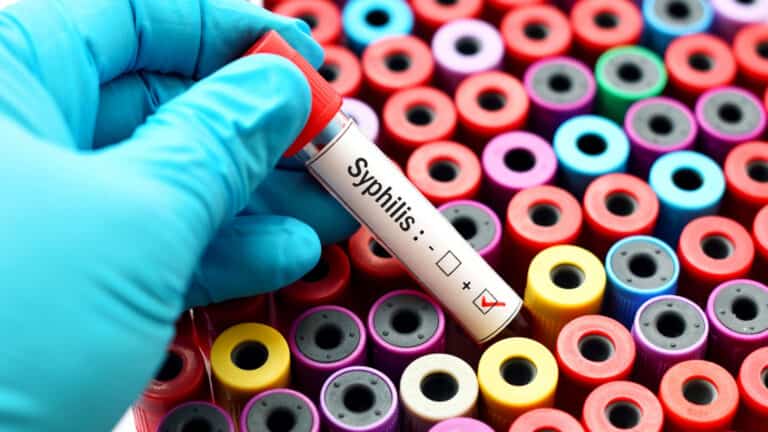Understanding Menopause and Its Impact on IBS
Menopause is a natural phase in a woman’s life, marking the end of her reproductive years. This significant hormonal transition can have various effects on the body, and for women already dealing with Irritable Bowel Syndrome (IBS), it may introduce new challenges and changes in their IBS symptoms. In this article, we’ll explore what happens during menopause and how it can influence IBS.
Menopause: A Brief Overview
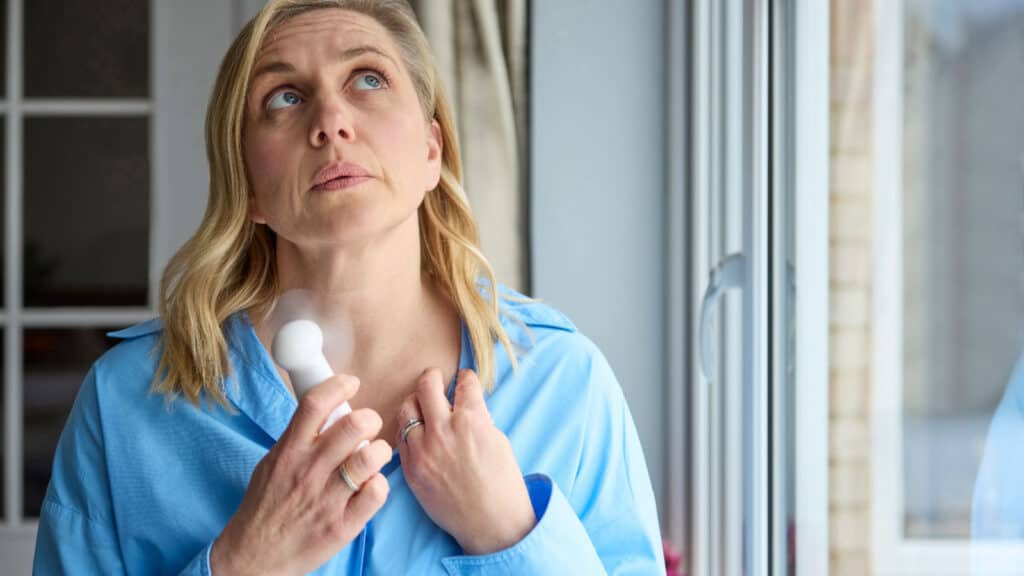
Menopause typically occurs between the ages of 45 and 55, with the average age being around 51. It signifies the cessation of menstruation, which is primarily driven by the decline in estrogen and progesterone hormones. While menopause is a natural biological process, its impact can vary significantly from woman to woman. Some may experience minimal symptoms, while others may face more pronounced changes in their physical and emotional well-being. Hot flashes are a well known symptom, as are disruptions in sleep and brain fog.
Hormonal Fluctuations and IBS

The hormonal changes associated with menopause can influence IBS in several ways. Estrogen, in particular, plays a crucial role in regulating various bodily functions, including those related to the gut. As estrogen levels decline, it can lead to alterations in gastrointestinal motility, which is how quickly or slowly the digestive system moves food through the intestines.
Potential Effects on IBS Symptoms
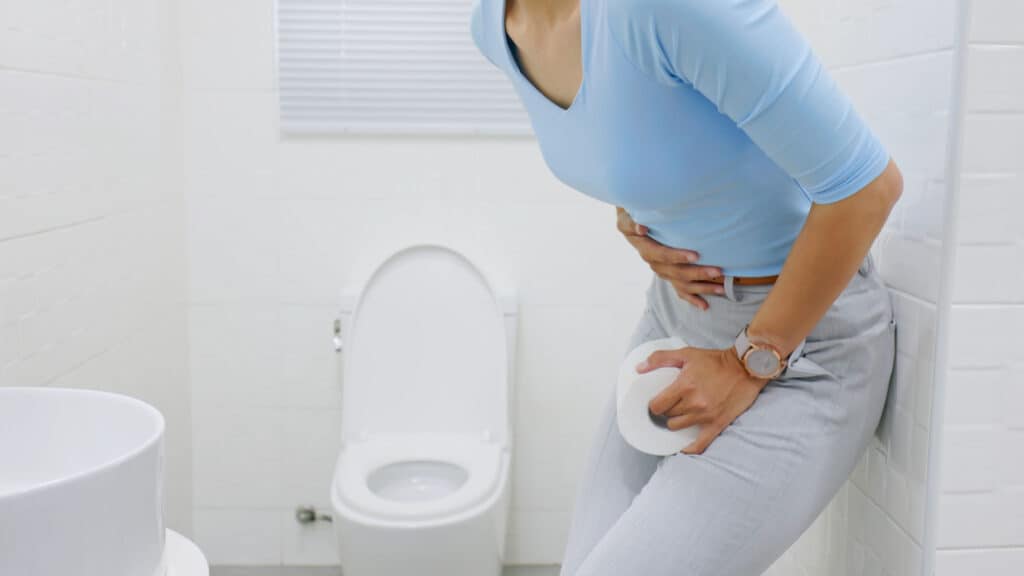
Many women with IBS experience a shift in their bowel habits during menopause. This may manifest as either increased or decreased frequency of bowel movements. Some women may notice an aggravation of their IBS symptoms, while others may experience temporary relief.
Abdominal Discomfort
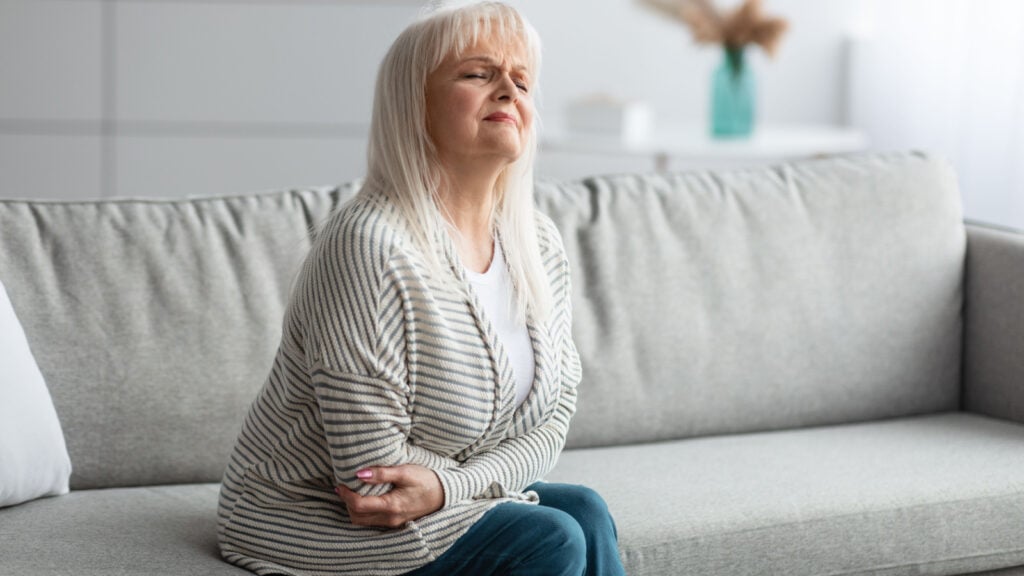
The decline in estrogen levels can contribute to increased abdominal discomfort, bloating, and gas. These symptoms can be particularly bothersome for women with IBS, as they often overlap with IBS-related issues.
Pain Perception
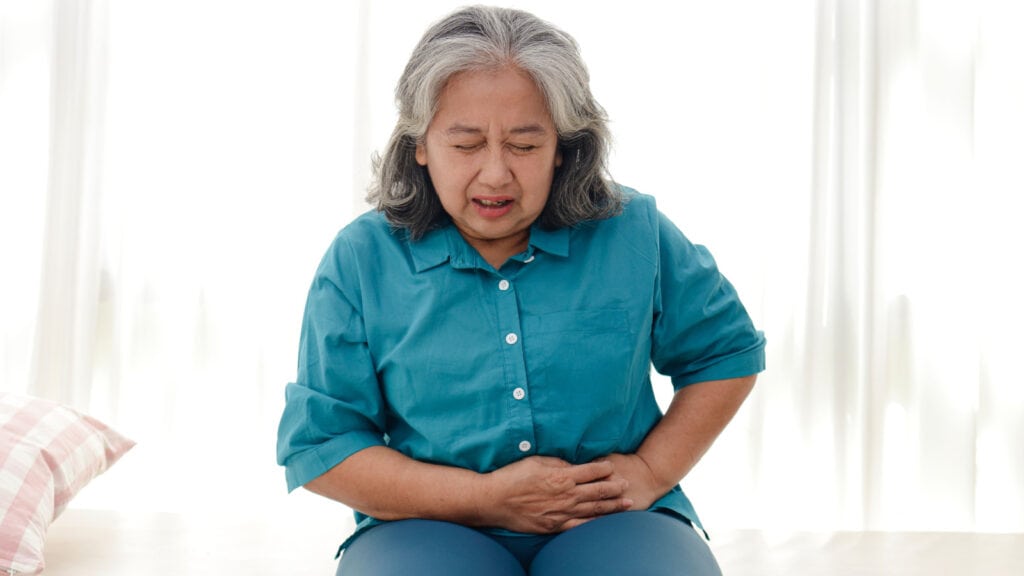
Estrogen is also known to influence pain perception. Its decrease may lead to heightened sensitivity to abdominal pain, which can make IBS symptoms more distressing for some women.
Psychological Impact
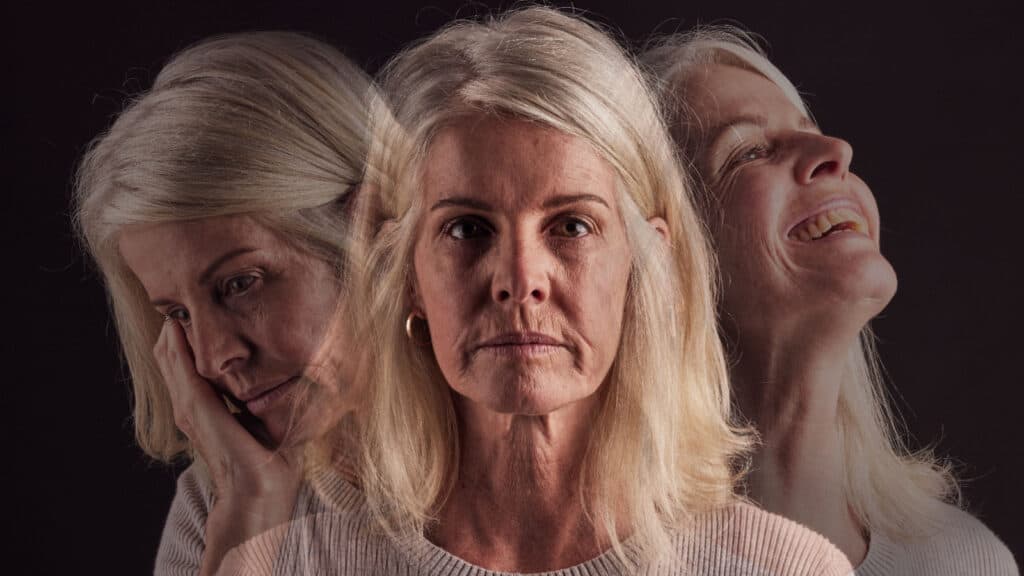
Menopause can bring about mood swings, anxiety, and depression in some individuals. These emotional factors can exacerbate IBS symptoms, as stress and emotions are known triggers for IBS flare-ups.
Coping Strategies

While menopause can introduce challenges for women with IBS, there are strategies to help manage these changes effectively:
Dietary Adjustments

Consult with a healthcare provider or dietitian to make appropriate dietary modifications that align with your IBS triggers and menopausal symptoms. This may include adopting a low FODMAP diet or identifying specific food triggers.
Hormone Replacement Therapy (HRT)
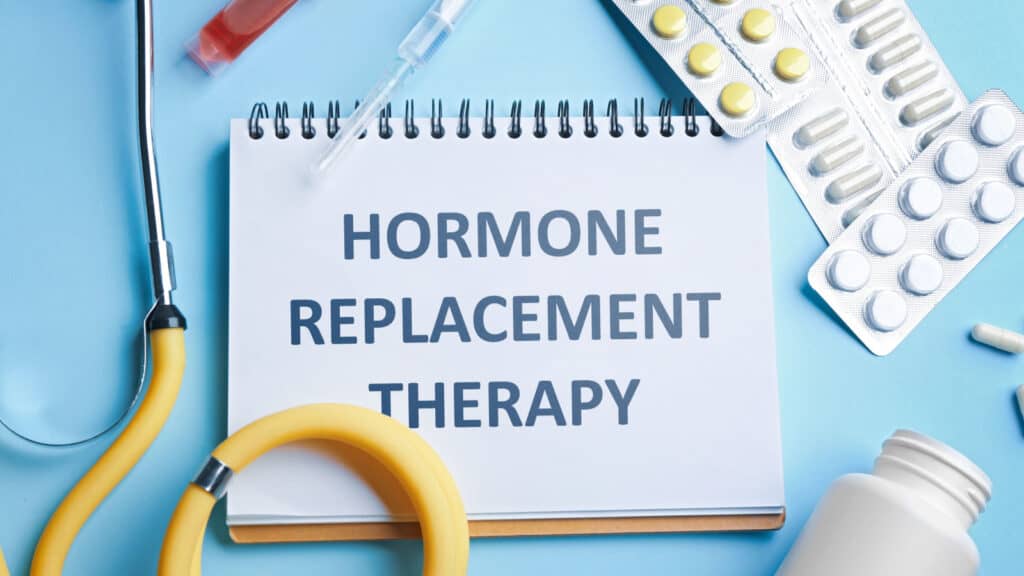
Discuss the option of hormone replacement therapy with your healthcare provider. HRT can help manage some of the hormonal imbalances associated with menopause and potentially alleviate certain IBS symptoms.
Stress Management

Engage in stress-reduction techniques such as mindfulness, meditation, or yoga to help mitigate the impact of emotional factors on your IBS.
Regular Exercise
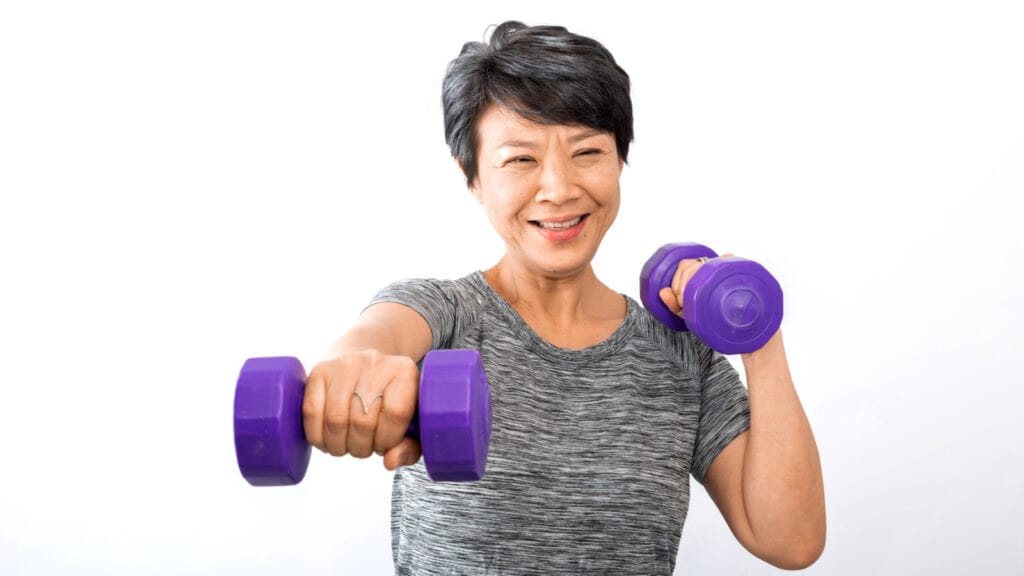
Incorporating regular physical activity into your routine can aid in maintaining healthy digestion and managing weight, which can be beneficial for both menopause and IBS.
Medication

In some cases, medication prescribed by a healthcare provider may be necessary to alleviate severe IBS symptoms during menopause.
The Takeaway
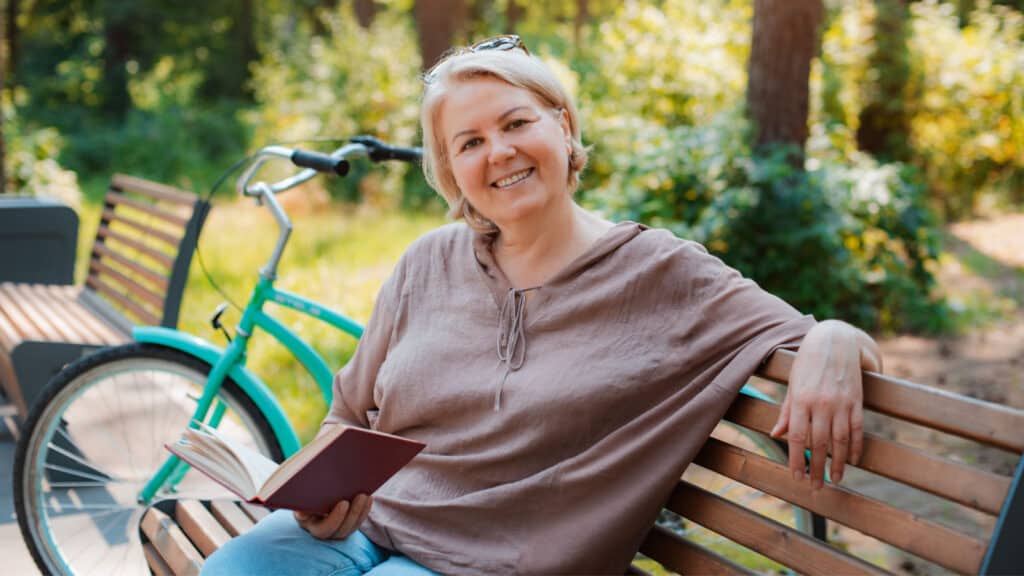
In summary, menopause is a natural phase in a woman’s life that can bring about hormonal changes with potential implications for IBS. Understanding how these hormonal fluctuations can affect your IBS symptoms is the first step in effectively managing them.
By adopting a holistic approach that includes lifestyle adjustments, dietary modifications, and, if needed, medical intervention, women can navigate through menopause with greater comfort and minimize the impact on their IBS. As always, it’s essential to work closely with healthcare professionals to tailor a personalized strategy that addresses both menopausal and IBS-related concerns.
More Articles About IBS

This article was based on original article written by Diana Reid MPH, RD for FODMAP Everyday.
Our sister publication FODMAP Everyday is at the forefront of IBS education, particularly in relation to the low FODMAP diet. We have brought versions of many of the articles here for you:
Join Us

Join us on this empowering journey as we explore, celebrate, and elevate “her story.” The Queen Zone is not just a platform; it’s a community where women from all walks of life can come together, share their experiences, and inspire one another. Welcome to a space where the female experience takes center stage. Sign up for our newsletter so you don’t miss a thing, Queen!




